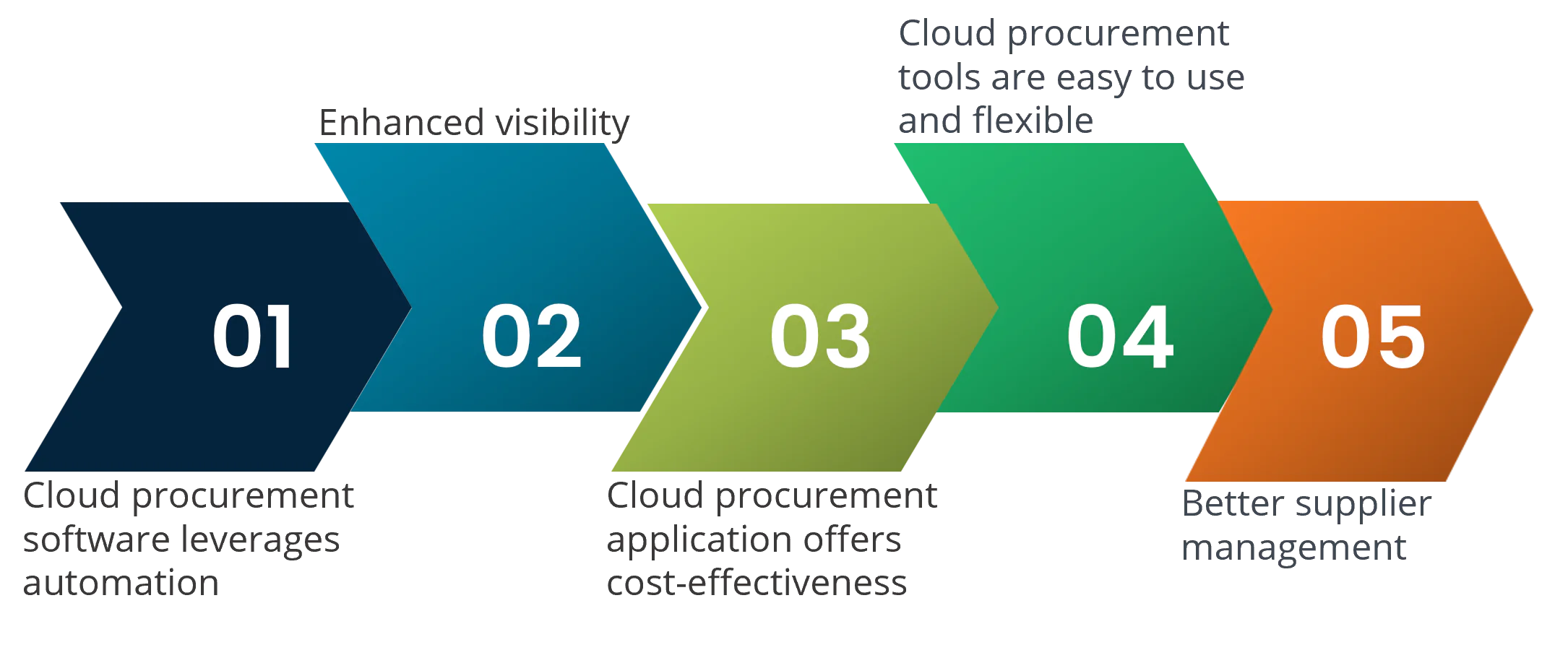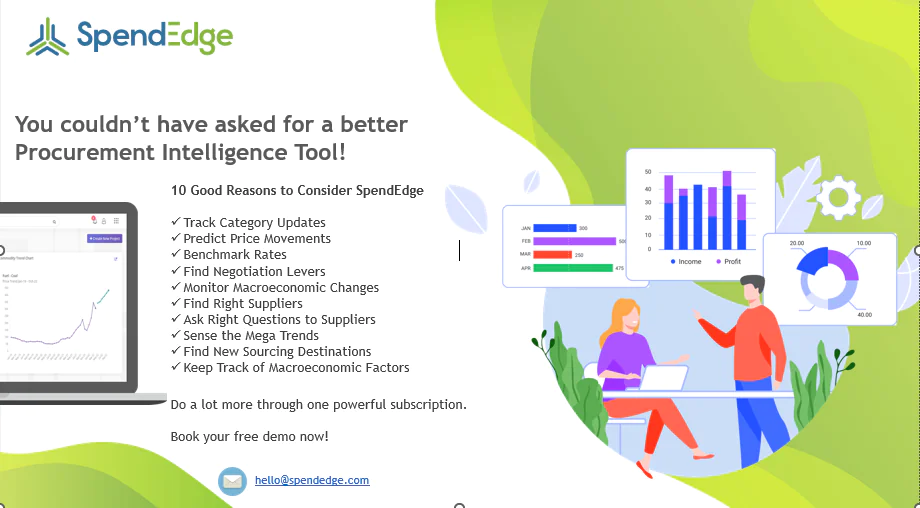Cloud sourcing is an arrangement where a company pays a third-party cloud hosting provider to deliver and support IT services that could otherwise be provided in-house. This is similar to outsourcing, but the cost for cloud computing services is usually based on a per-use utility model rather than an annual or monthly contract. The cloud provides the ability to store and access data via the Internet while cloud procurement systems automate processes such as data entry, cost analysis, vendor selection, and project tracking. All this functionality helps to reduce costs, choose the best vendors, ensure compliance, appraise supplier risk, and streamline the procure-to-pay cycle.
When evaluating cloud procurement, essential aspects to consider include the provider’s reliability, security measures, scalability, pricing structure, service level agreements (SLAs), data privacy and compliance, integration capabilities, customer support, and overall reputation in the market. Thoroughly assessing these aspects ensures a well-informed decision and successful implementation of cloud procurement solutions.
Cloud procurement benefits that can improve procurement activities

Cloud procurement software leverages automation:
Cloud procurement software revolutionizes the source-to-contract cycle through comprehensive automation. AI capabilities efficiently handle low-value, repetitive tasks like document filing, and liberating human resources for strategic initiatives. This advanced software embeds built-in controls and alerts, ensuring rigorous compliance within procurement processes. By automating mundane activities, the technology accelerates operational efficiency, minimizes errors, and enhances accuracy. This results in a more streamlined and controlled procurement lifecycle, where professionals can focus on value-driven tasks, optimizing resource allocation and fostering a strategic, technology-driven approach to procurement within the organization.
Cloud-based procurement solutions offer enhanced visibility:
Cloud-based procurement solutions offer enhanced visibility into a company’s cash flow, enabling finance and purchasing departments to analyze, benchmark, and improve processes. With improved transparency, businesses can identify inefficiencies, overspending, and savings opportunities across all units, leading to better reporting, and cost management. This increased spending visibility improves efficiency and productivity across core business processes. Cloud procurement solutions provide complete visibility of the procure-to-pay process. The dashboard provides real-time visibility to track the process, and identify and fix problems — increasing process efficiency. Users can also generate insightful reports that support informed decision-making and strategic planning.
Cloud procurement application offers cost-effectiveness:
Cloud procurement is a cost-effective solution for organizations of all sizes looking to streamline their procurement process. It eliminates the need for significant capital investments in IT personnel, hardware, or expensive legacy solutions. Cloud procurement applications provide efficient and adaptable procurement capabilities, with lower upfront costs and simplified deployment. The available pay-as-you-use subscription plans make it accessible to organizations of all sizes while keeping operational expenses low. Additionally, data is securely stored in the cloud, reducing the risk of data loss and enabling cost savings on maintenance and recovery.
Cloud procurement tools are easy to use and flexible:
Cloud procurement tools offer user-friendly interfaces and flexibility, allowing swift setup and customization aligned with the business’s procurement processes. This adaptability ensures a faster time-to-market for procurement solutions. Seamless integration through APIs further enhances efficiency by eliminating data redundancy and reducing the need for manual intervention. This interoperability streamlines workflows, enhances data accuracy, and expedites the overall procurement cycle. The user-friendly nature and integration capabilities of cloud procurement tools contribute to a more agile, responsive, and technologically optimized procurement ecosystem, empowering businesses to adapt swiftly to changing needs and market dynamics.
Better supplier management:
Managing suppliers is a crucial part of procurement for several reasons. It helps protect the organization from the risk of overpaying or paying for substandard products and services. Additionally, effective supplier management puts managers in a better position to deal with supply chain issues, which are especially common in global markets. Suppliers who provide goods and services to a company are vital to its success, so it’s important to ensure that they are appropriate business partners. Procurement software can assist in this process by evaluating factors such as the supplier’s regulatory compliance and financial stability. Once the vetting is finished, the software can also manage these relationships by taking actions such as sending reminders when a vendor’s qualifications are about to expire or their risk profile changes.





